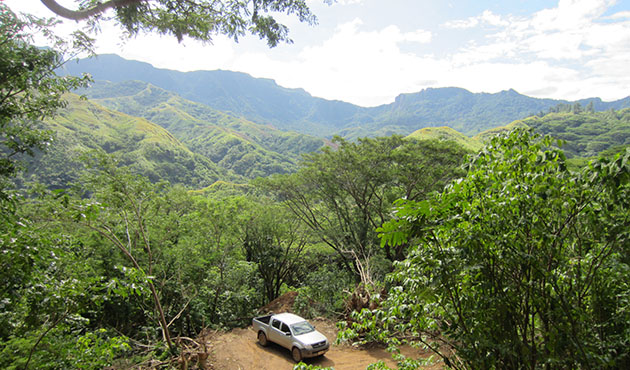Explorer Continues Defining 'World-Class Alkaline Gold System' in Fiji
posted on
Jan 09, 2020 09:08PM

Defining 'World-Class Alkaline Gold System' in Fiji

Source: Streetwise Reports (1/9/20)
The work the company has conducted to date at the project and the implications are discussed in a Scarsdale Equities report.

In a Jan. 3 research note, Scarsdale Equities analyst Mike Niehuser reported that "evidence continues to mount for an alkaline gold system" at Lion One Metals Ltd.'s (LIO:TSX.V; LOMLF:OTCQX) Tuvatu project in Fiji. Accordingly, Scarsdale increased its target price on the gold company to CA$2.25 per share and kept it Buy rated. In comparison, Lion One's current share price is CA$1.64.
The analyst reviewed the indicators that point to Lion One continuing to define a world-class alkaline gold system in Fiji's Navilawa caldera.
In the recent past, the gold company engaged Dr. Quinton Hennigh as a technical geological advisor, who indicated the Tuvatu gold deposit in the Navilawa caldera could be part of a larger, world-class alkaline gold system, like that of the Vatukoula gold mine.
Hennigh initiated a program of conducting bulk leach extractable gold (BLEG) geochemical surveys to analyze stream sediments in the caldera. These showed the presence of surface gold mineralization throughout it.
The most recent positive sign is the results Lion One reported from the first of its four deep hole drill program at Tuvatu. Hole TUDDH493 intersected gold mineralization about 70 meters below TUDDH-160 (the best drill hole to date under the Tuvatu gold deposit). Results for the second deep drill hole TUDDH494, which tested areas 70 meters below TUDDH493, are pending.
"As alkaline gold systems may extend deeper, we see the Tuvatu gold deposit, coupled with other surface expressions of gold in the BLEG surveys, as having a reasonable likelihood of connecting at depth," Niehuser explained. "This would suggest that the Navilawa caldera has the potential to host another world-class gold deposit in the South Pacific."
Further, Lion One acquired a drill company with a deep hole drill capacity of 1,000m. It also developed an assay lab "to expand and accelerate exploration through BLEG sampling and deep drilling," noted Niehuser.
Currently, the Canadian explorer is carrying out a CSAMT, or controlled-source electromagnetics and audiofrequency magnetotellurics, geophysical survey to delineate deep structures at Tuvatu. "When combined with BLEG surveys, this will be the first comprehensive exploration program assessing the potential of the Navilawa caldera," Niehuser commented. Also, Lion One is developing a "lower-cost modular production scenario."